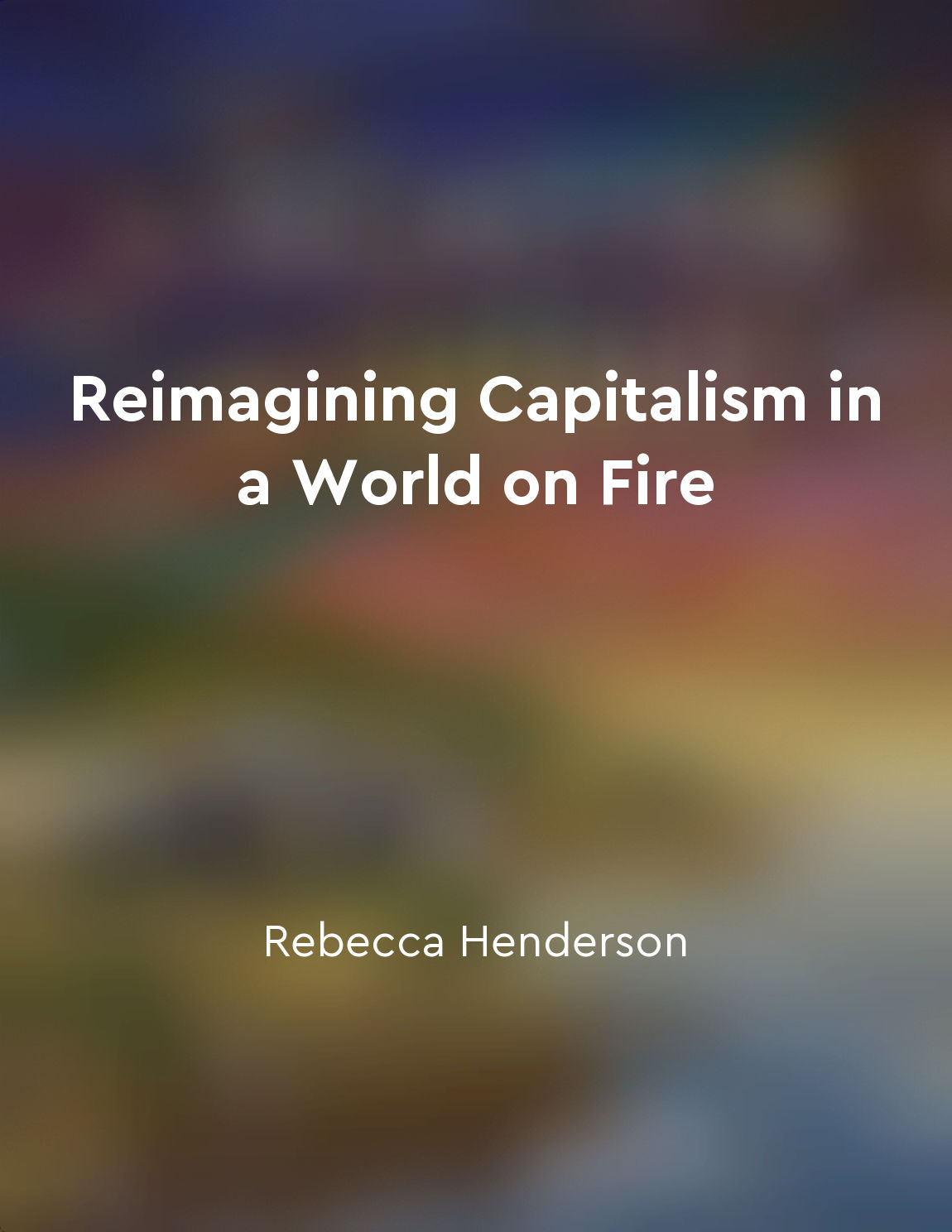Exploitation of natural resources from "summary" of The Shock Doctrine by Naomi Klein
The relentless pursuit of profit at any cost has led to the ruthless exploitation of natural resources in the name of progress. Far from being a sustainable approach, this exploitative mindset has resulted in the depletion and destruction of our planet's most precious assets. From forests to oceans, no ecosystem has been spared from the insatiable greed of corporations and governments seeking to extract every last ounce of profit from the Earth. This shortsighted approach not only harms the environment but also jeopardizes the well-being of future generations. The Shock Doctrine, as described by Naomi Klein, reveals how disasters and crises are often manipulated to further the agenda of resource exploitation. In times of chaos and confusion, when people are at their most vulnerable, opportunistic forces swoop in to push through their destructive plans under the guise of recovery and development. The consequences of this exploitation are far-reaching and devastating. Entire communities are uprooted, ecosystems are irreversibly damaged, and indigenous peoples are displaced from their ancestral lands. The true cost of this exploitation is often hidden behind a veneer of progress and prosperity, but the reality is stark and undeniable. The time has come to reevaluate our relationship with the natural world and to reject the exploitative practices that have brought us to the brink of environmental collapse. Only by recognizing the intrinsic value of our planet's resources and working towards a more sustainable future can we hope to preserve the beauty and diversity of our world for generations to come.Similar Posts

Embracing sustainability can lead to financial success
Embracing sustainability is not just a moral imperative; it is also a sound business strategy. Companies that prioritize sustai...
Building resilient infrastructure for longterm sustainability
The key to ensuring the long-term sustainability of our infrastructure lies in its resilience. Resilient infrastructure is able...

Innovation drove economic growth
In the course of centuries, mankind has made many inventions. Every new machine that it has invented has made the work of men e...
Imposing limits on consumption is vital
Imposing limits on consumption is vital. Throughout history, societies have faced the challenge of balancing their resource con...
Strong communities foster resilience in times of crisis
In the face of crisis, the strength of a community can be the difference between collapse and resilience. When individuals are ...
Impact on global economy
The shock doctrine is a strategy that has been employed by various powerful entities to exploit moments of crisis and disaster ...
Strained resources prompt societal collapse
In explaining why societies collapse, I have identified a common thread: the strain placed on resources. When a society's deman...

The development of writing allowed for the preservation of knowledge
Writing was one of the most revolutionary developments in human history. It allowed Homo sapiens to store and transmit knowledg...
We are reaching the end of a stable climate
The world has always been changing, but now it is changing in a way that is different, that is new. We have reached the point w...
